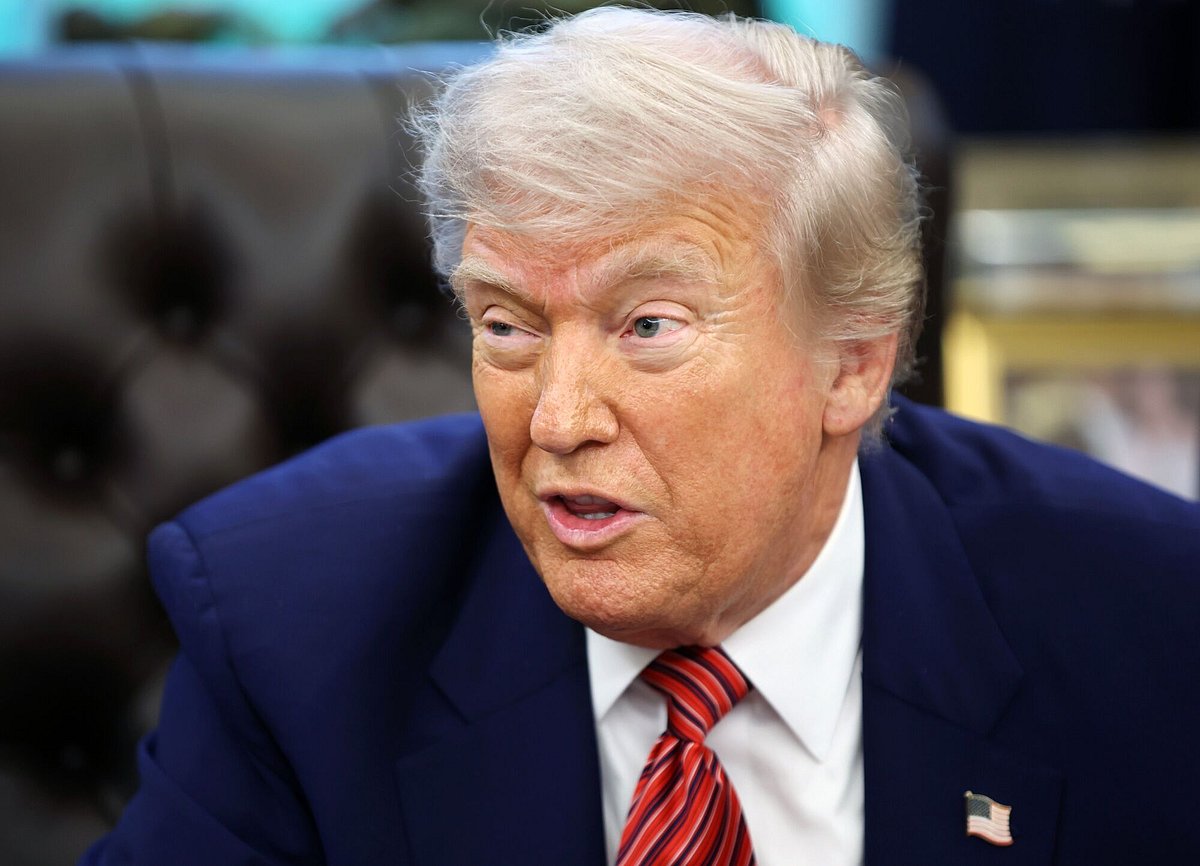A US federal court on Wednesday blocked most of Donald Trump's sweeping import tariffs from going into effect, ruling that the president had "overstepped" his authority with the across-the-board global levies.
The three-judge Court of International Trade effectively called a ceasefire, barring most of the restrictions that the president has announced since taking office in January.
Here's a quick explainer on what happened:
Q: What just happened with Trump’s tariffs?
A US federal court blocked most of former President Donald Trump’s global import tariffs, ruling that he overstepped his authority by imposing sweeping, across-the-board levies.
Q: Why were the tariffs imposed in the first place?
Trump argued that trade deficits and the influx of drugs posed a “national emergency,” which justified the use of emergency powers to impose tariffs on most U.S. trading partners.
Q: What was the court’s main reason for blocking the tariffs?
The Court of International Trade said the president cannot use emergency powers under the International Emergency Economic Powers Act (IEEPA) to impose unlimited tariffs. It ruled this interpretation unconstitutional and an overreach of executive authority.
"The question in the two cases before the court is whether the International Emergency Economic Powers Act of 1977 ("IEEPA") delegates these powers to the president in the form of authority to impose unlimited tariffs on goods from nearly every country in the world," the three-judge panel wrote in an unsigned opinion.
The court, which adjudicates civil cases arising from trade disputes, said that any interpretation of the IEEPA that "delegates unlimited tariff authority is unconstitutional," according to court documents.
The IEEPA authorises the president to impose necessary economic sanctions during an emergency "to combat an unusual and extraordinary threat," the bench said.
Q: Who challenged the tariffs?
Two lawsuits were filed — one by US businesses and another by a coalition of state governments — arguing the tariffs violated congressional authority over trade and spending.
Q: What does the ruling mean now?
The ruling halts the implementation of most tariffs and gives the White House 10 days to begin the process of officially suspending them.
Q: How has the Trump administration responded?
The Justice Department has defended Trump's trade strategy in court, insisting that the judiciary has very limited authority over his actions and sparking criticism that the White House was attempting to usurp the power of the other branches of government.
Trump’s legal team has already filed an appeal, and White House officials, including adviser Stephen Miller, have sharply criticised the decision, calling it a “judicial coup.” The White House argued that "unelected judges" have no right to weigh in on Trump's handling of the issue.
"President Trump pledged to put America first, and the administration is committed to using every lever of executive power to address this crisis and restore American greatness," said Trump's spokesman Kush Desai.
Q: What’s the broader impact?
The decision marks a major legal and political setback for Trump’s trade agenda, which had already disrupted global markets and prompted economic responses like South Korea’s interest rate cut.
Gregory W. Meeks, the top Democrat on the House Foreign Affairs Committee, said the ruling confirmed that "these tariffs are an illegal abuse of executive power." "Trump's declaration of a bogus national emergency to justify his global trade war was an absurd and unlawful use of IEEPA," he added.
The White House has ten days to complete the procedural steps necessary to officially halt the contested measures.
Although many of these tariffs are currently suspended, the administration must still adhere to the required bureaucratic processes to ensure compliance with the court's decision.
The case will now proceed through the appeals process. Should the appeal fail, the US Customs and Border Protection (CBP) will be instructed to implement the court's ruling.
John Leonard, former CBP official, told the BBC that officers would then be guided on enforcement changes based on legal outcomes. Until the appeals are resolved, no immediate operational changes will occur at U.S. borders, and affected tariffs must still be paid.
There is speculation that a higher court may be more favourable to the Trump administration's stance.
However, if the ruling is upheld at all judicial levels, companies that have already paid elevated tariffs — including those on Chinese goods raised to 145% — will be eligible for refunds, including accrued interest.
These so-called "reciprocal tariffs" had been uniformly set at 10% for most countries, with notable increases targeting select imports from China.
Market analysts responded cautiously but positively.
Stephen Innes, managing partner at SPI Asset Management, noted that investors appeared relieved after enduring heightened volatility due to tariff-driven uncertainty.
“The Oval Office isn't a trading desk, and the Constitution isn't a blank cheque,” he wrote, describing the ruling as a clear check on executive overreach and a potential source of renewed macroeconomic stability.
Paul Ashworth of Capital Economics observed that the decision significantly complicates the administration’s strategy of using tariffs to pressure foreign governments into rapid trade agreements.
“This ruling will obviously throw into disarray the Trump administration's push to quickly seal trade ‘deals’ during the 90-day pause,” he said, suggesting that many nations may now adopt a wait-and-see approach before returning to negotiations.
Sign up for the Daily Briefing
Get the latest news and updates straight to your inbox
Network Links
GN StoreDownload our app
© Al Nisr Publishing LLC 2026. All rights reserved.
